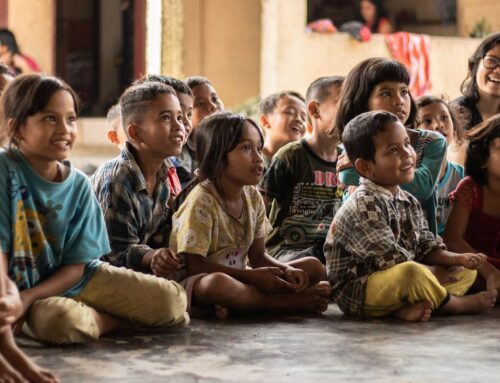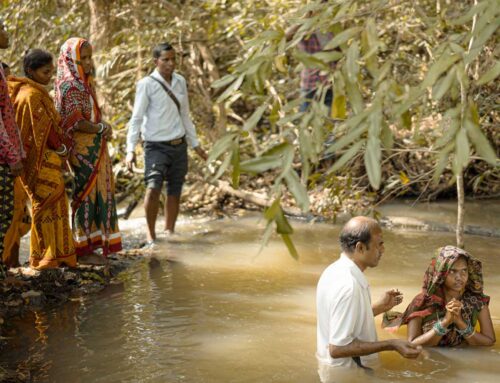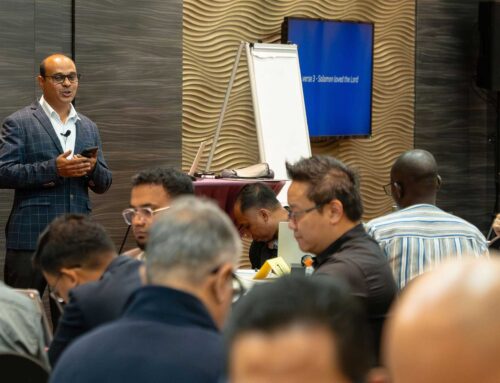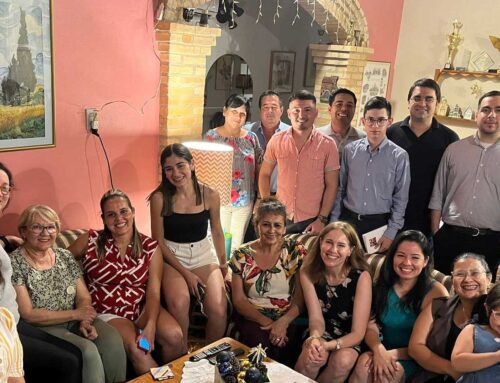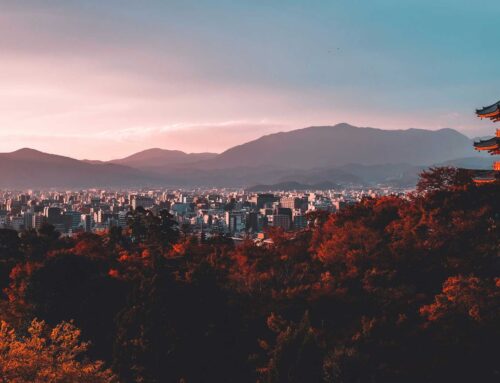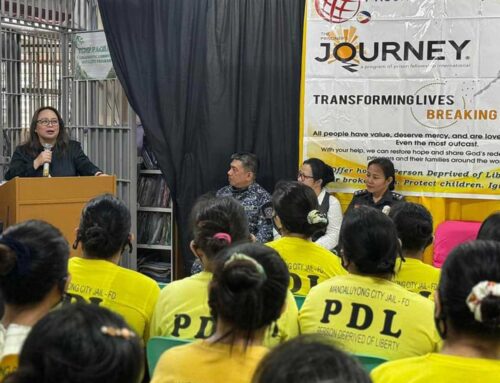Reaching the Safe House
Dewi*, a twelve-year-old Indonesian girl, arrives at the safe house at noon. Everything and everyone is unfamiliar to her, but she feels welcome and is finally able to exhale. She was rescued from her home earlier that morning by Budi* and his wife who had discovered that she was being sexually abused by one of her family members. As Dewi finds her way to her new room she meets 5 other young girls in the house, two of them with babies.
Indonesia’s 2021 National Children and Youth Survey found that 3.7% of boys and 8.4% of girls experience sexual violence throughout their childhood. These rates are slightly higher on the island where Budi has opened a shelter for young children needing help. He says, “Because most of the perpetrators are close family members, either biological fathers or siblings, their homes are no longer safe for them. We created this shelter so that they have a sense of security and grow well here.”
He remembers the first time he and his wife encountered a sexual abuse victim when serving in the community. He says, “Three children aged 13, 14, and 16 years old came over crying. I asked the owner of the house why the child was crying and it turned out the child was pregnant. From there on we couldn’t sleep. I asked God what we could do for these children, and He gave me the idea of the shelter.” Budi’s Haggai Leader Experience proved helpful at this point, as he was able to clarify his vision and set realistic goals.
At the safe house, victims receive protection, education, skills training, and spiritual formation. Whilst close connections are maintained with local social services, Budi sees this time as an opportunity to show the love of Jesus. The restoration process looks different for each survivor and the shelter gives them the space to heal. Children like Dewi, are placed into a discipleship group where they are encouraged to form healthy relationships and learn to read the Bible. Budi and his wife also make a point of going back to the families involved to share the message of Jesus with them, praying that they too can be restored.
Apart from the safe house, Budi is also involved in helping the community drill for water. Access to clean water is difficult, so these opportunities are used to gather the villagers, many of whom have never heard of Jesus, and to share the Gospel. They hand out Bibles and start Bible discovery groups where people can learn and ask questions. Budi and his wife are agents of change, deeply desiring transformation for individuals like Dewi and the community at large.
*Names changed for security
Written by Carolyn Grant
Reaching the Safe House
Dewi*, a twelve-year-old Indonesian girl, arrives at the safe house at noon. Everything and everyone is unfamiliar to her, but she feels welcome and is finally able to exhale. She was rescued from her home earlier that morning by Budi* and his wife who had discovered that she was being sexually abused by one of her family members. As Dewi finds her way to her new room she meets 5 other young girls in the house, two of them with babies.
Indonesia’s 2021 National Children and Youth Survey found that 3.7% of boys and 8.4% of girls experience sexual violence throughout their childhood. These rates are slightly higher on the island where Budi has opened a shelter for young children needing help. He says, “Because most of the perpetrators are close family members, either biological fathers or siblings, their homes are no longer safe for them. We created this shelter so that they have a sense of security and grow well here.”
He remembers the first time he and his wife encountered a sexual abuse victim when serving in the community. He says, “Three children aged 13, 14, and 16 years old came over crying. I asked the owner of the house why the child was crying and it turned out the child was pregnant. From there on we couldn’t sleep. I asked God what we could do for these children, and He gave me the idea of the shelter.” Budi’s Haggai Leader Experience proved helpful at this point, as he was able to clarify his vision and set realistic goals.
At the safe house, victims receive protection, education, skills training, and spiritual formation. Whilst close connections are maintained with local social services, Budi sees this time as an opportunity to show the love of Jesus. The restoration process looks different for each survivor and the shelter gives them the space to heal. Children like Dewi, are placed into a discipleship group where they are encouraged to form healthy relationships and learn to read the Bible. Budi and his wife also make a point of going back to the families involved to share the message of Jesus with them, praying that they too can be restored.
Apart from the safe house, Budi is also involved in helping the community drill for water. Access to clean water is difficult, so these opportunities are used to gather the villagers, many of whom have never heard of Jesus, and to share the Gospel. They hand out Bibles and start Bible discovery groups where people can learn and ask questions. Budi and his wife are agents of change, deeply desiring transformation for individuals like Dewi and the community at large.
*Names changed for security
Written by Carolyn Grant
Reaching the Safe House
Dewi*, a twelve-year-old Indonesian girl, arrives at the safe house at noon. Everything and everyone is unfamiliar to her, but she feels welcome and is finally able to exhale. She was rescued from her home earlier that morning by Budi* and his wife who had discovered that she was being sexually abused by one of her family members. As Dewi finds her way to her new room she meets 5 other young girls in the house, two of them with babies.
Indonesia’s 2021 National Children and Youth Survey found that 3.7% of boys and 8.4% of girls experience sexual violence throughout their childhood. These rates are slightly higher on the island where Budi has opened a shelter for young children needing help. He says, “Because most of the perpetrators are close family members, either biological fathers or siblings, their homes are no longer safe for them. We created this shelter so that they have a sense of security and grow well here.”
He remembers the first time he and his wife encountered a sexual abuse victim when serving in the community. He says, “Three children aged 13, 14, and 16 years old came over crying. I asked the owner of the house why the child was crying and it turned out the child was pregnant. From there on we couldn’t sleep. I asked God what we could do for these children, and He gave me the idea of the shelter.” Budi’s Haggai Leader Experience proved helpful at this point, as he was able to clarify his vision and set realistic goals.
At the safe house, victims receive protection, education, skills training, and spiritual formation. Whilst close connections are maintained with local social services, Budi sees this time as an opportunity to show the love of Jesus. The restoration process looks different for each survivor and the shelter gives them the space to heal. Children like Dewi, are placed into a discipleship group where they are encouraged to form healthy relationships and learn to read the Bible. Budi and his wife also make a point of going back to the families involved to share the message of Jesus with them, praying that they too can be restored.
Apart from the safe house, Budi is also involved in helping the community drill for water. Access to clean water is difficult, so these opportunities are used to gather the villagers, many of whom have never heard of Jesus, and to share the Gospel. They hand out Bibles and start Bible discovery groups where people can learn and ask questions. Budi and his wife are agents of change, deeply desiring transformation for individuals like Dewi and the community at large.
*Names changed for security
Written by Carolyn Grant


